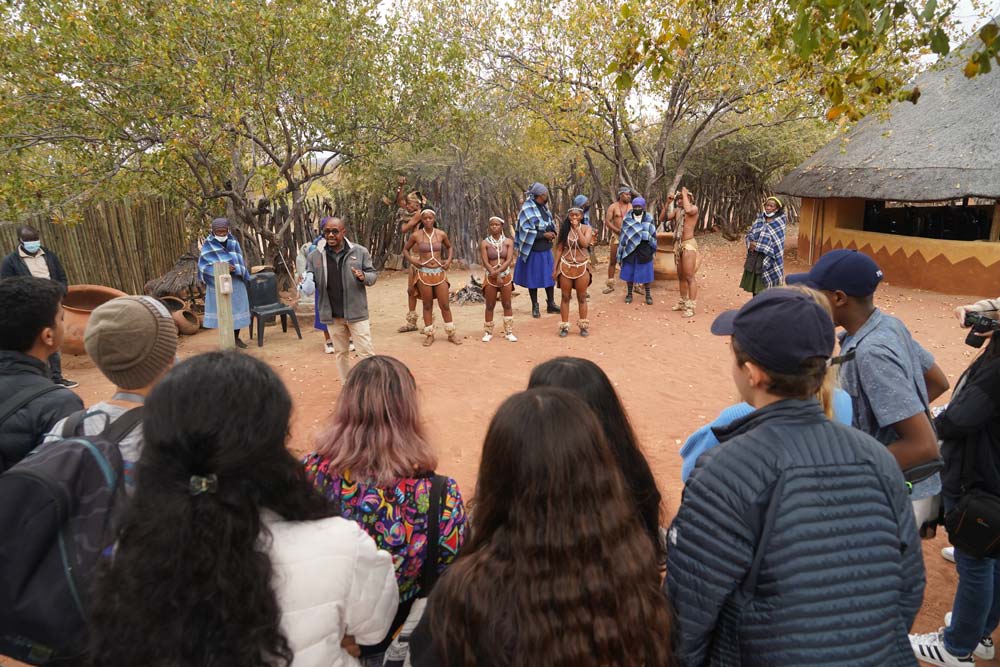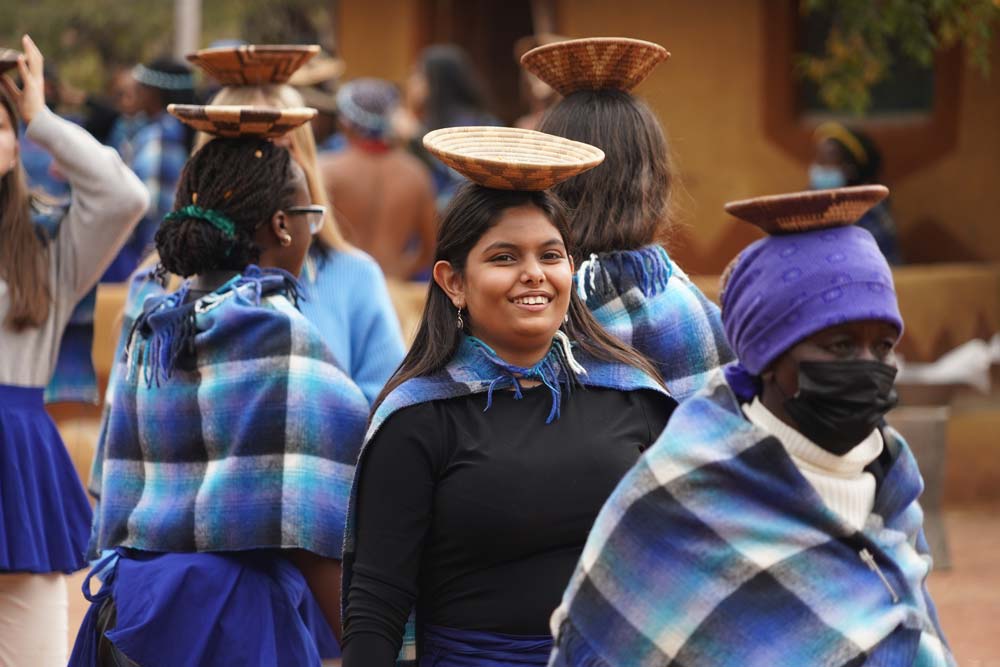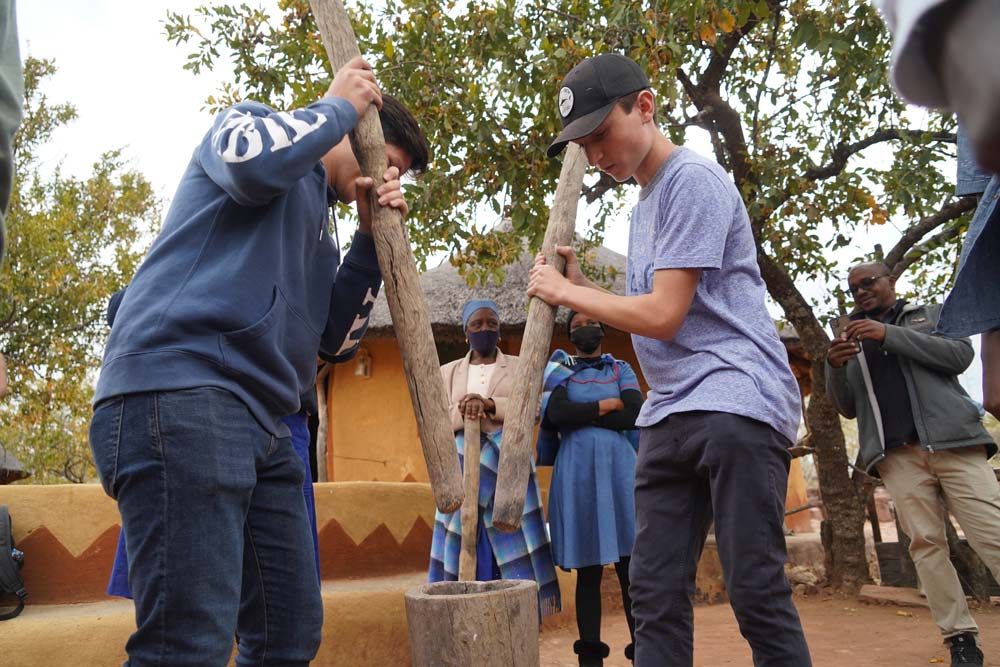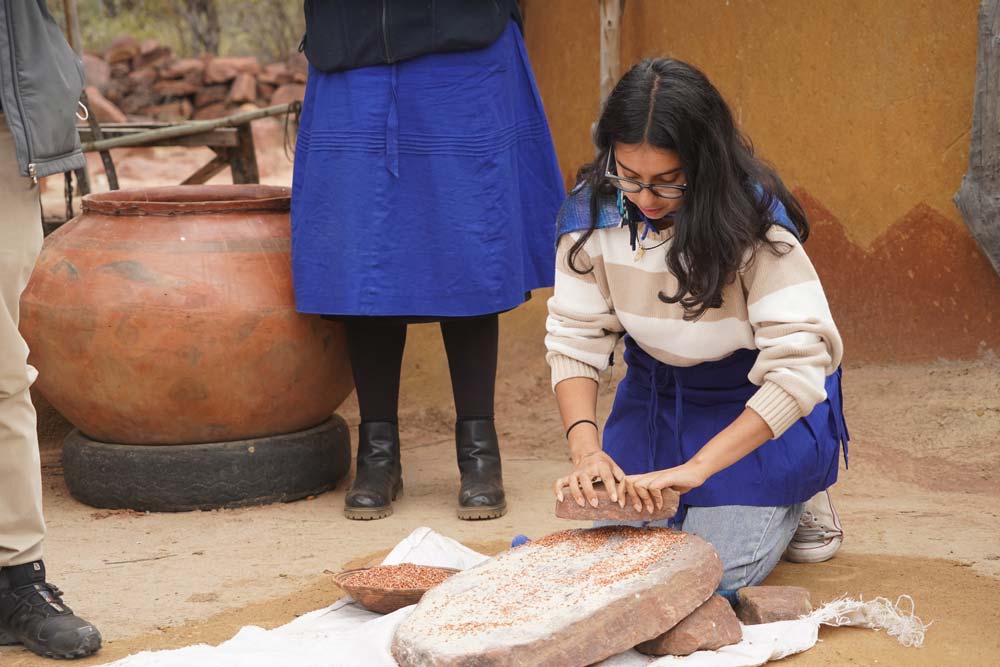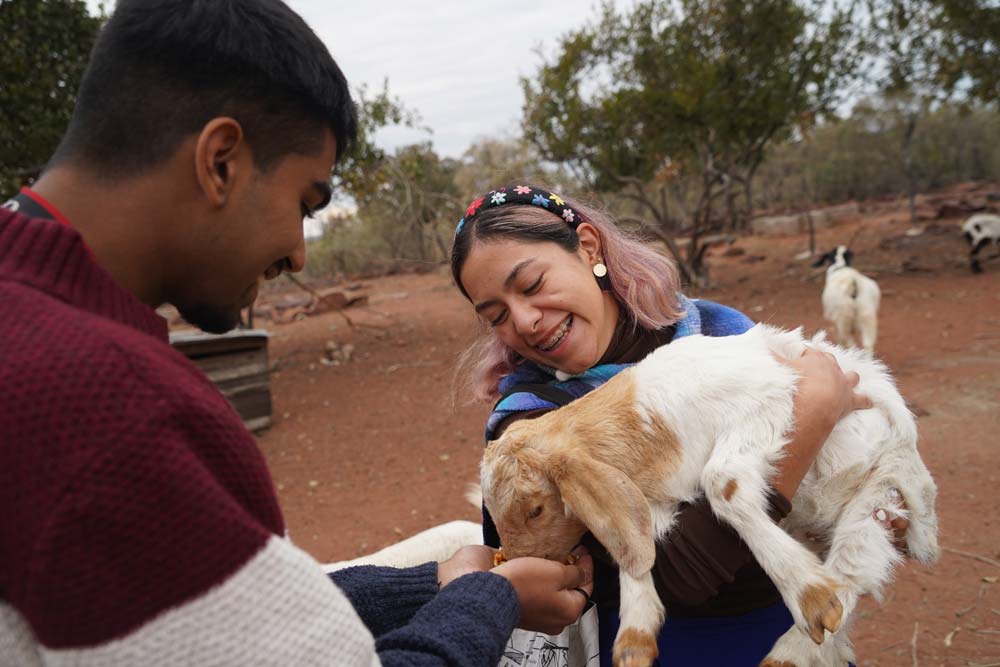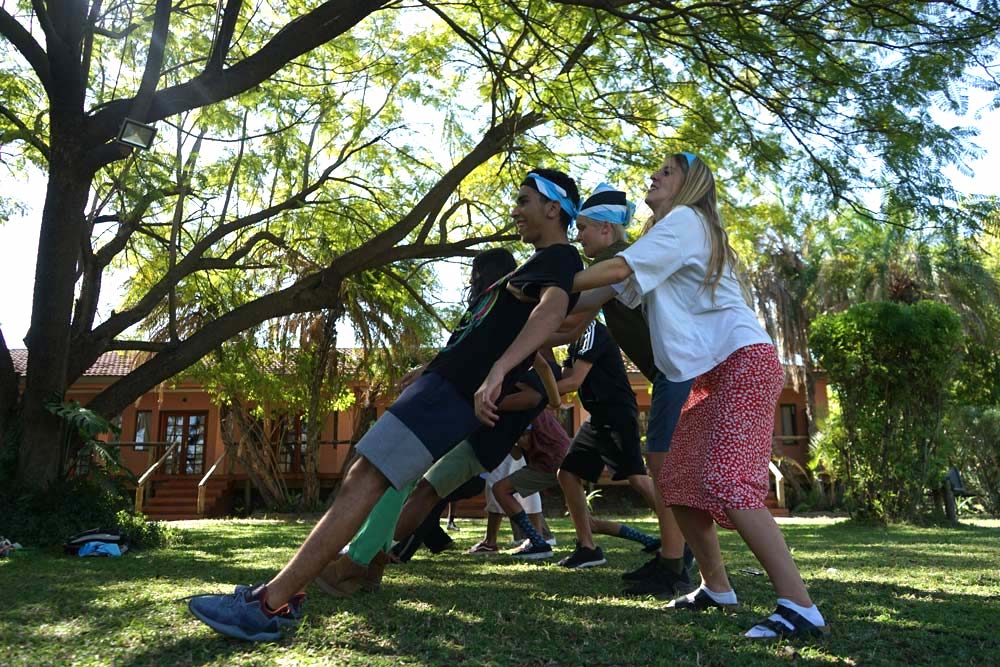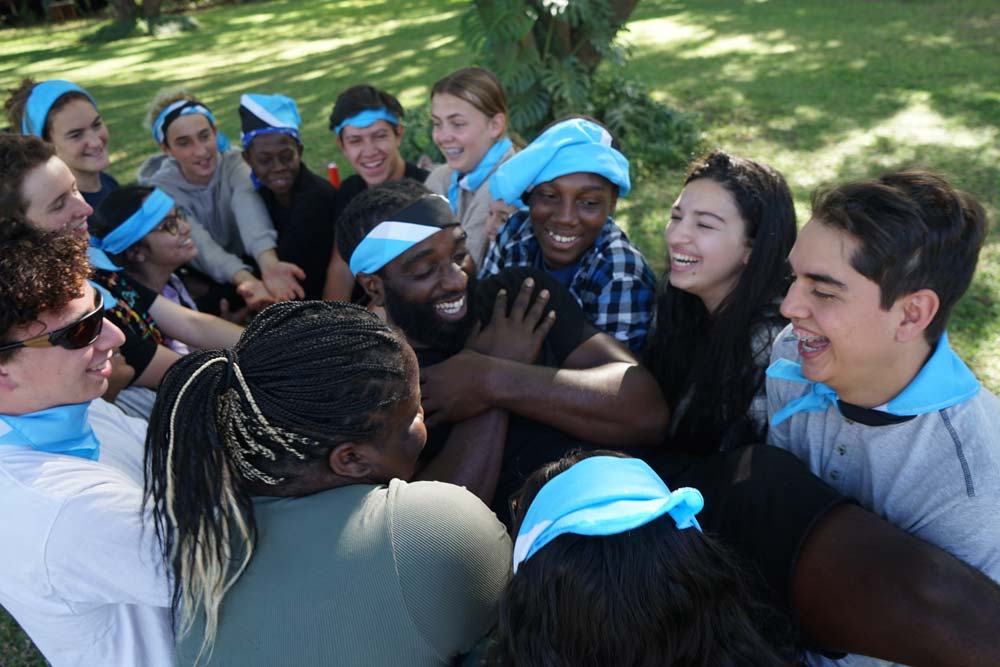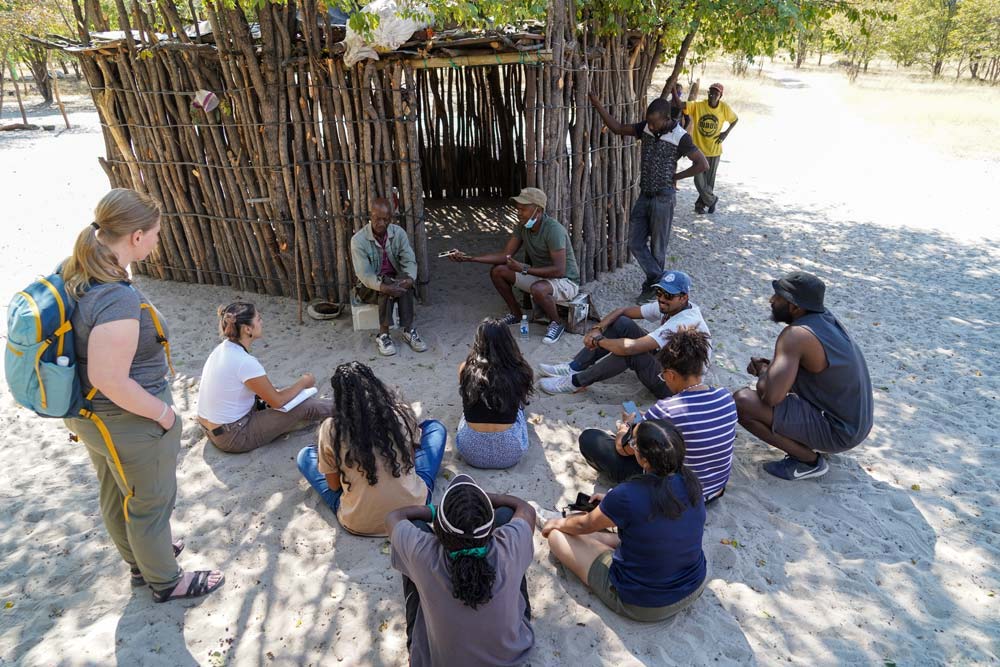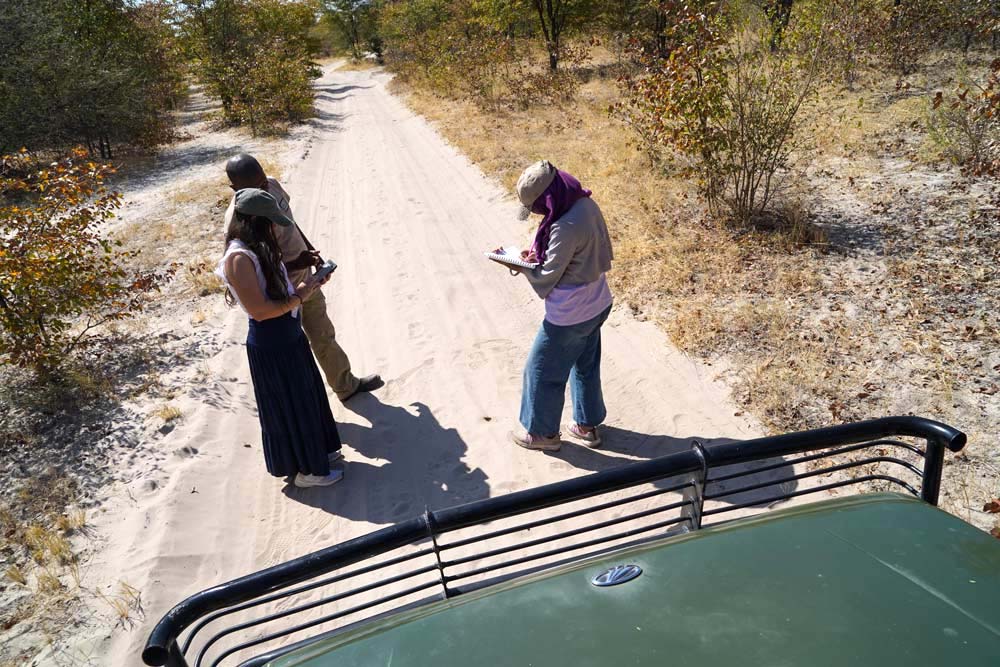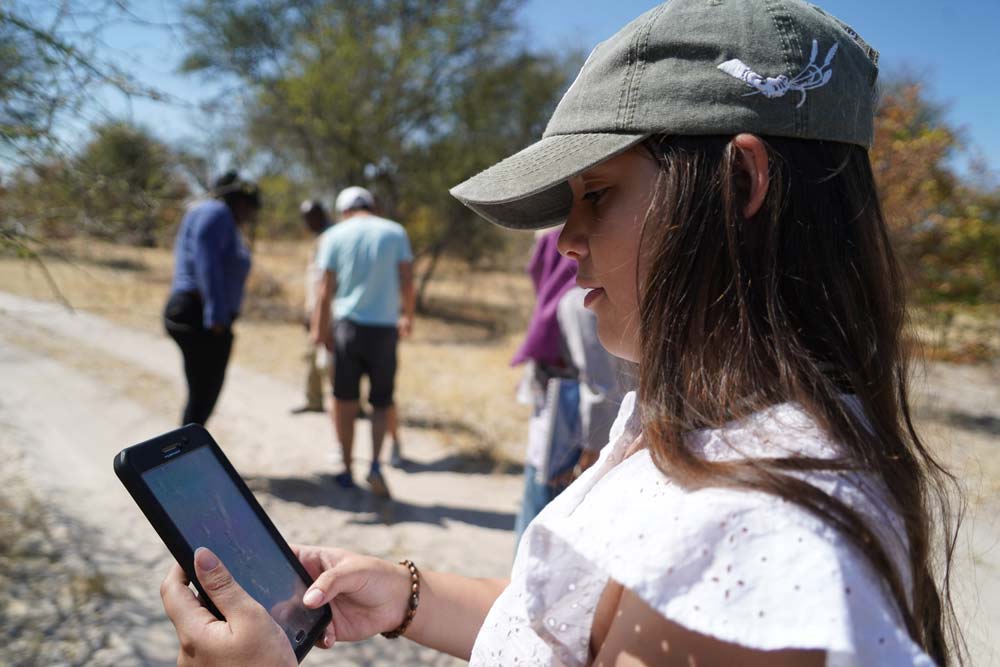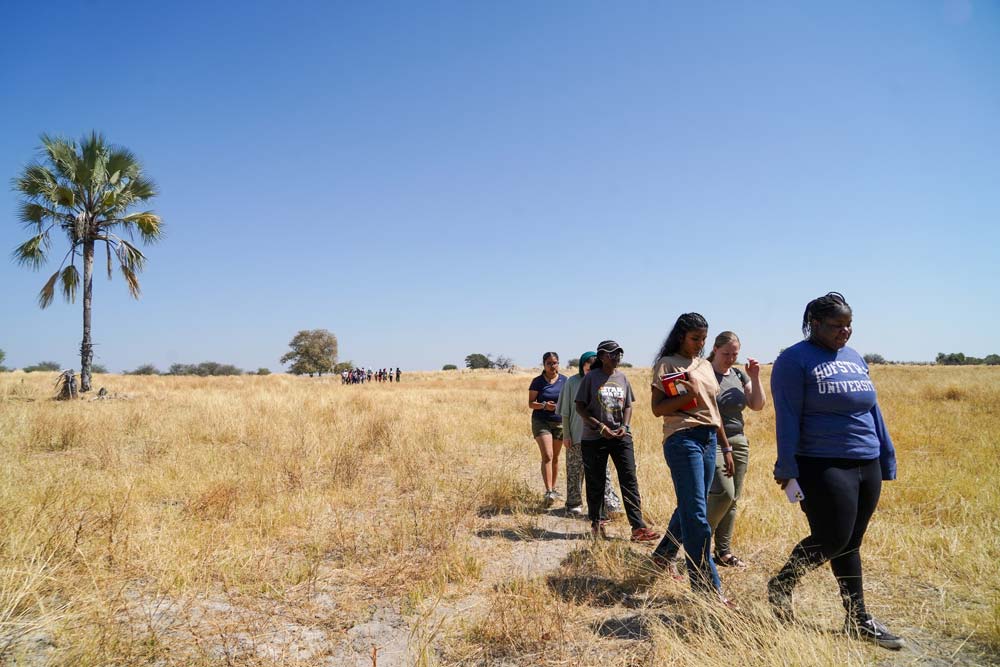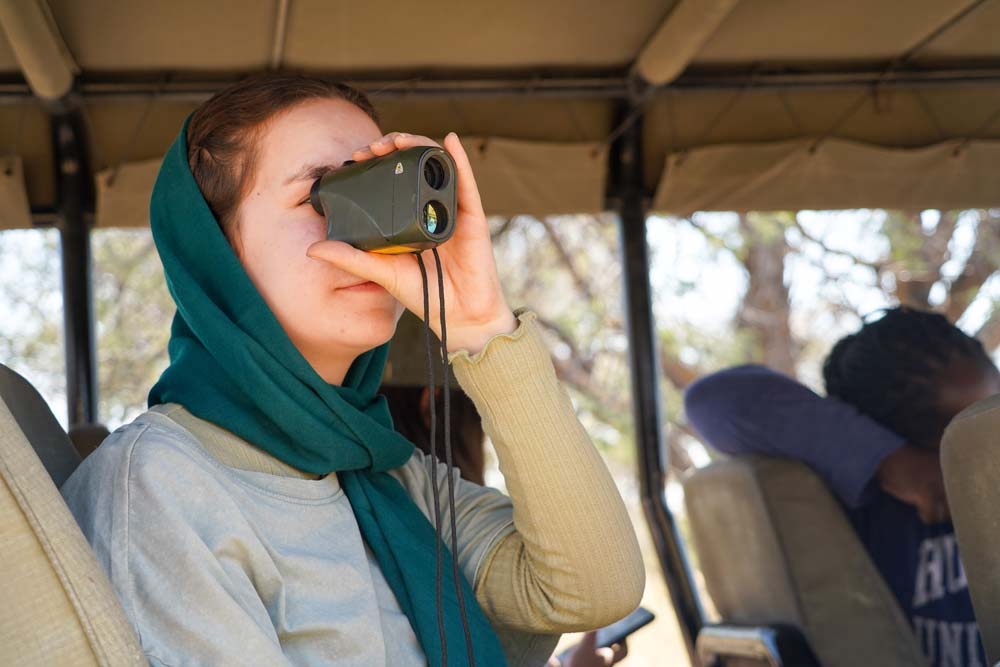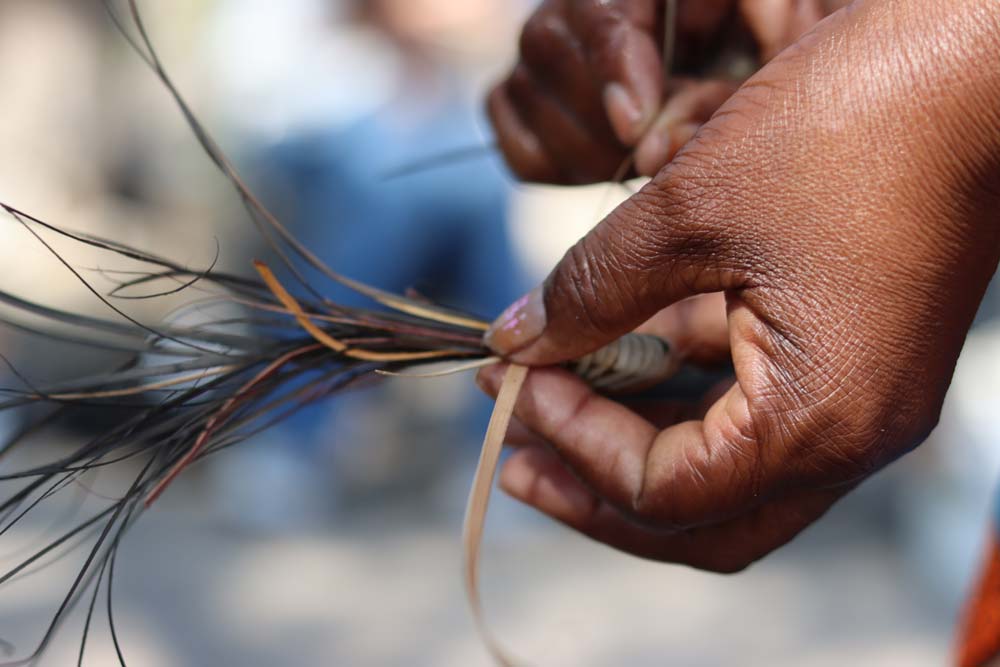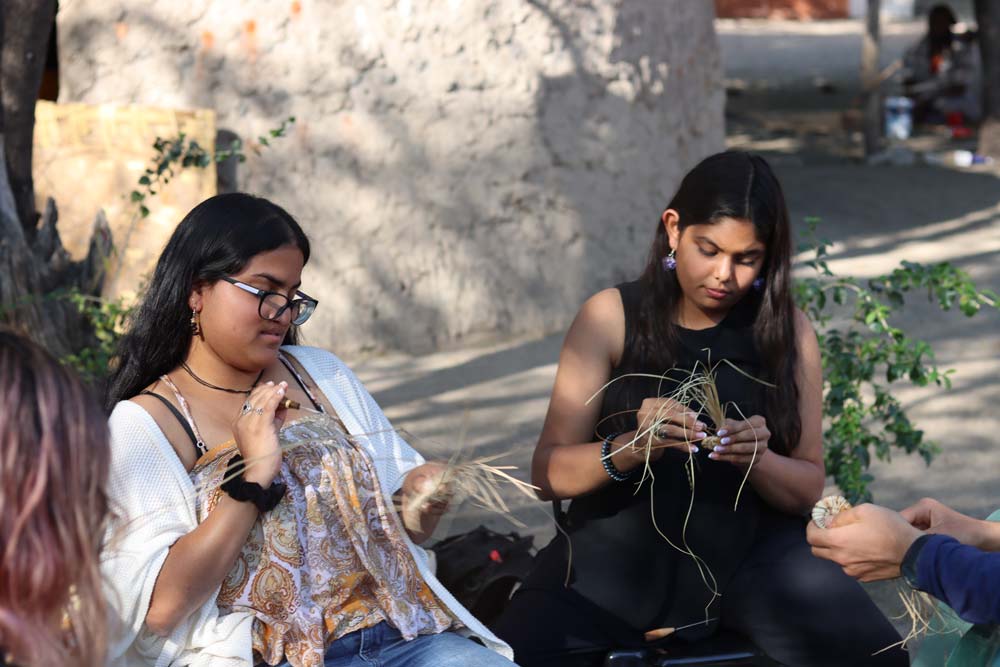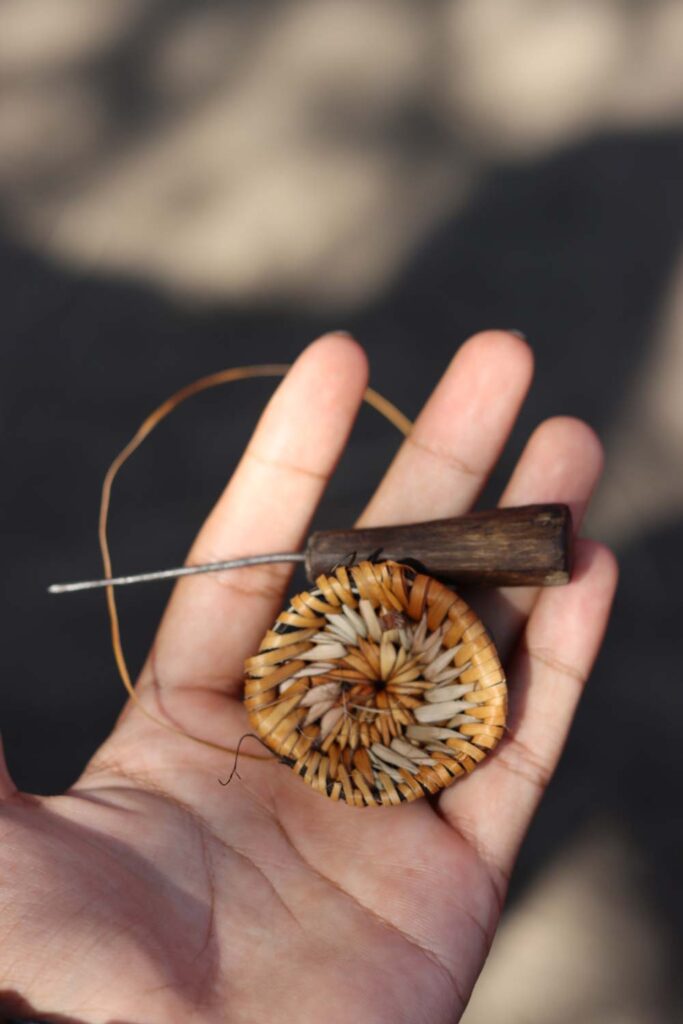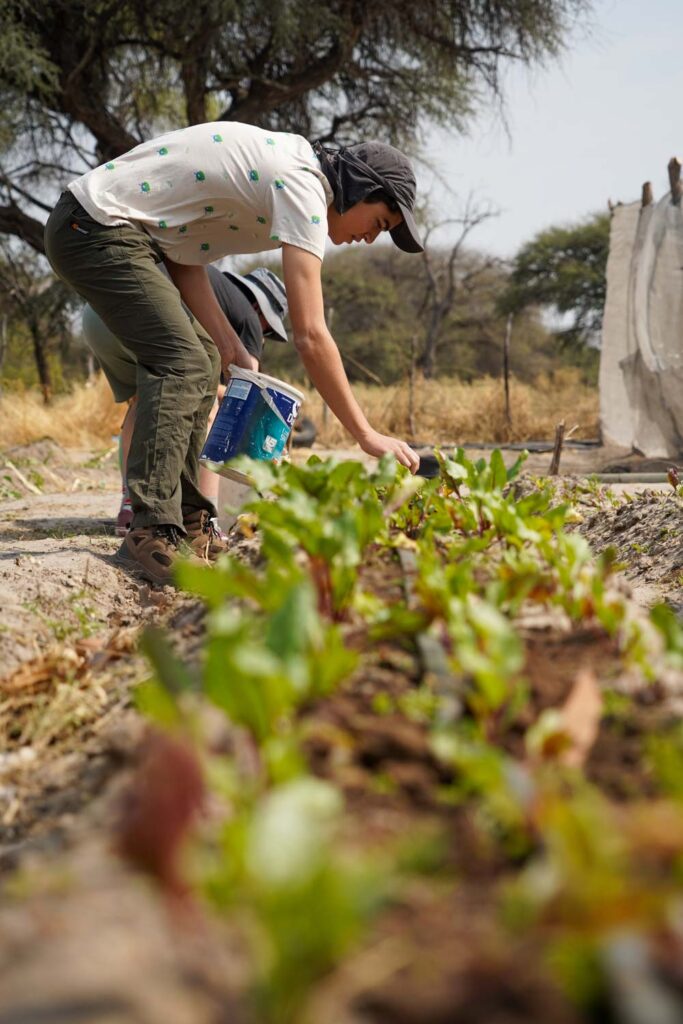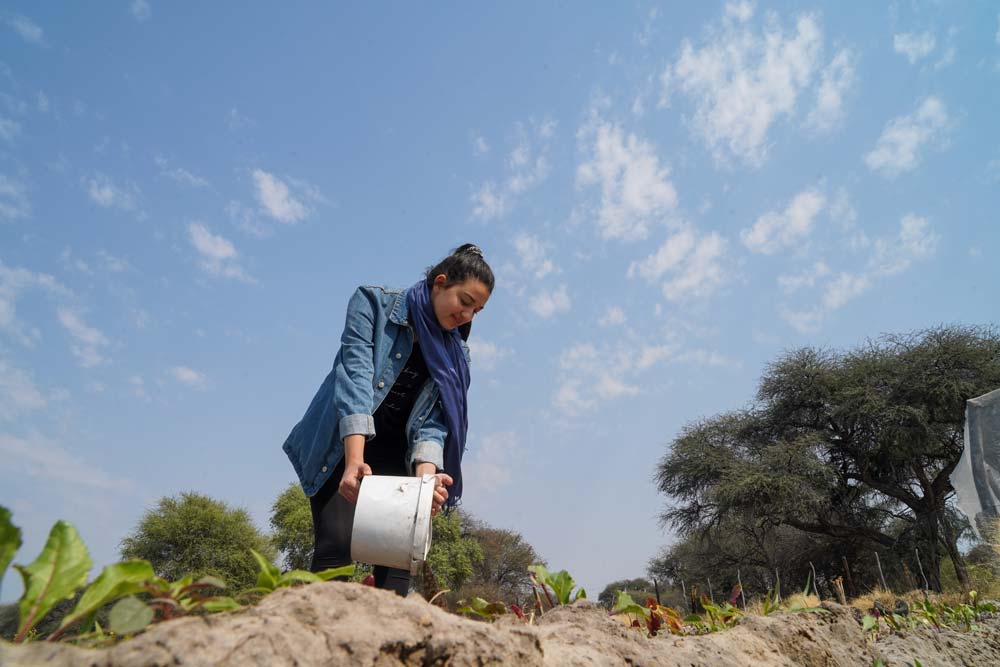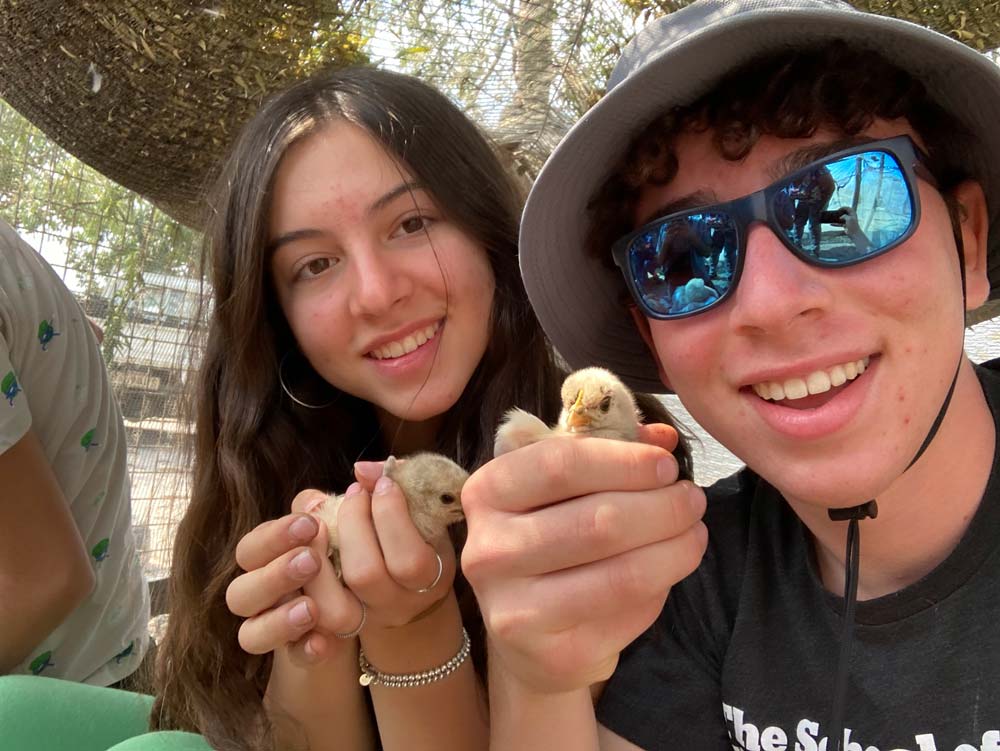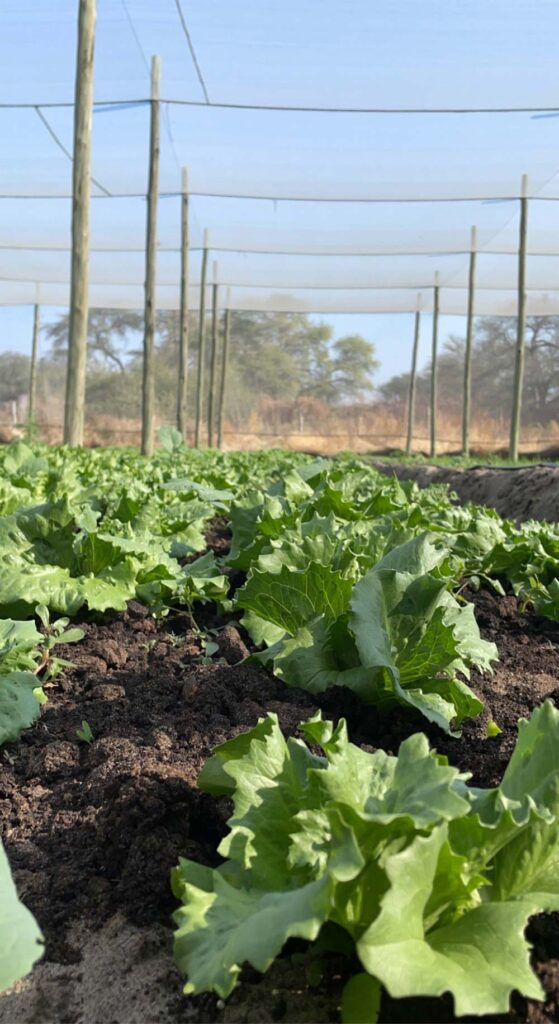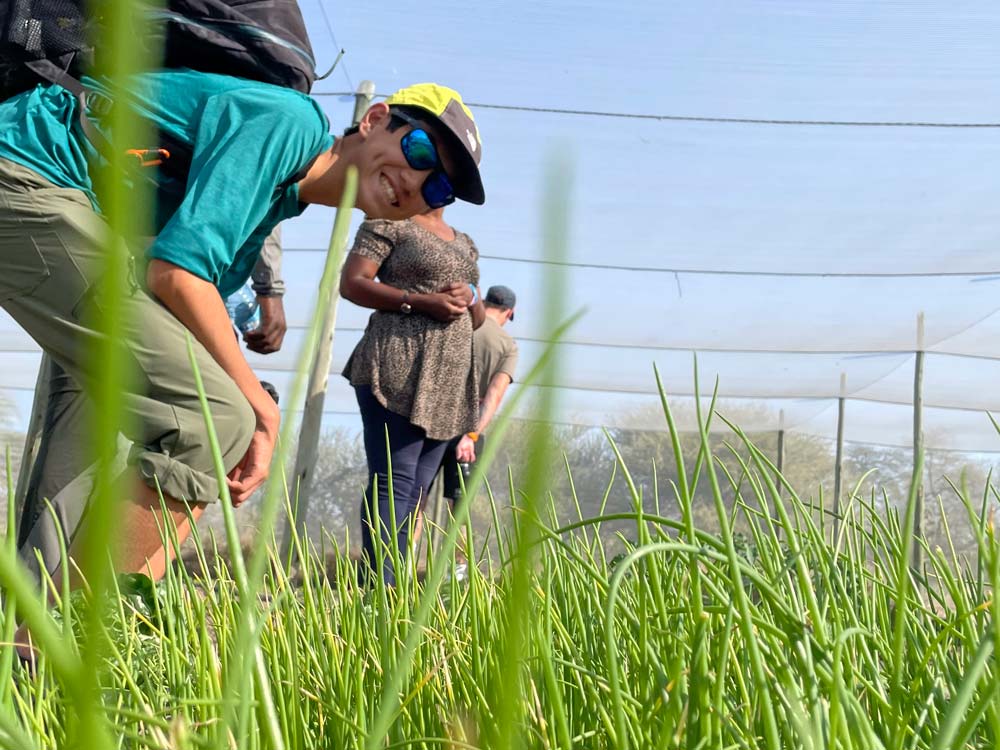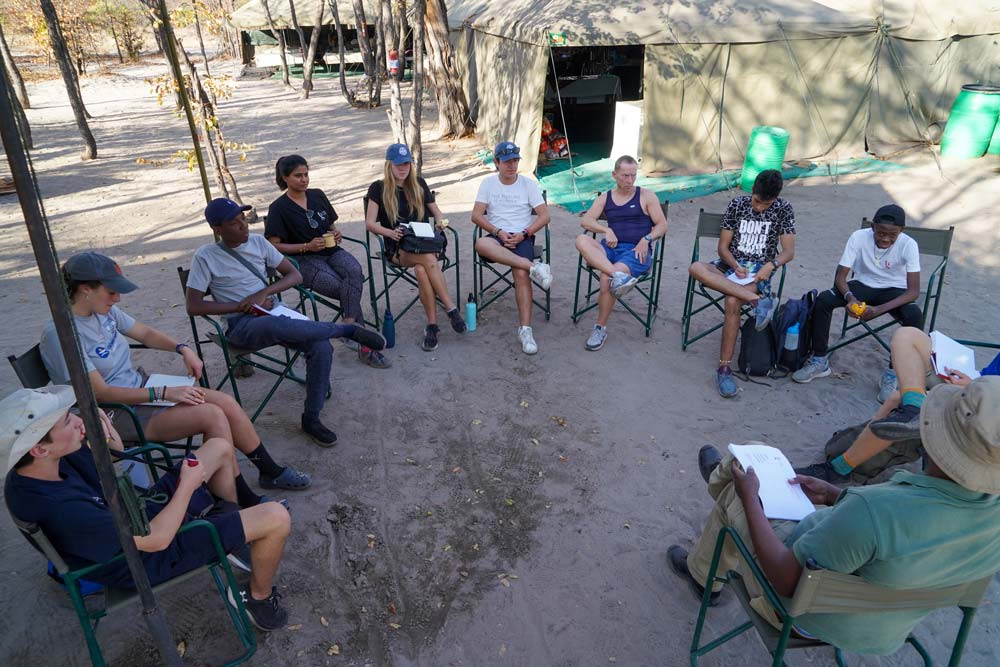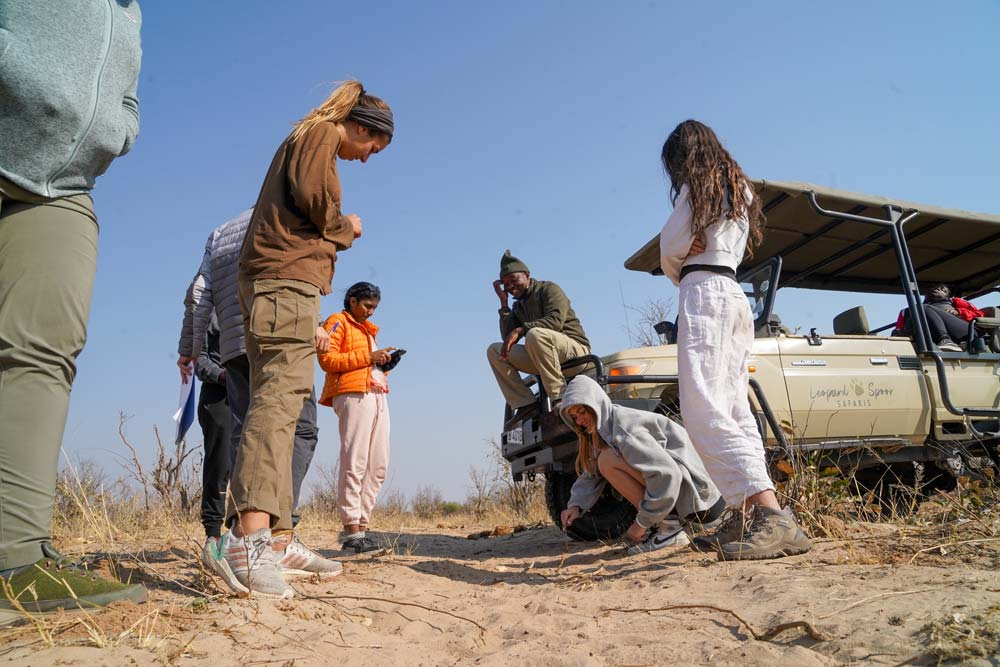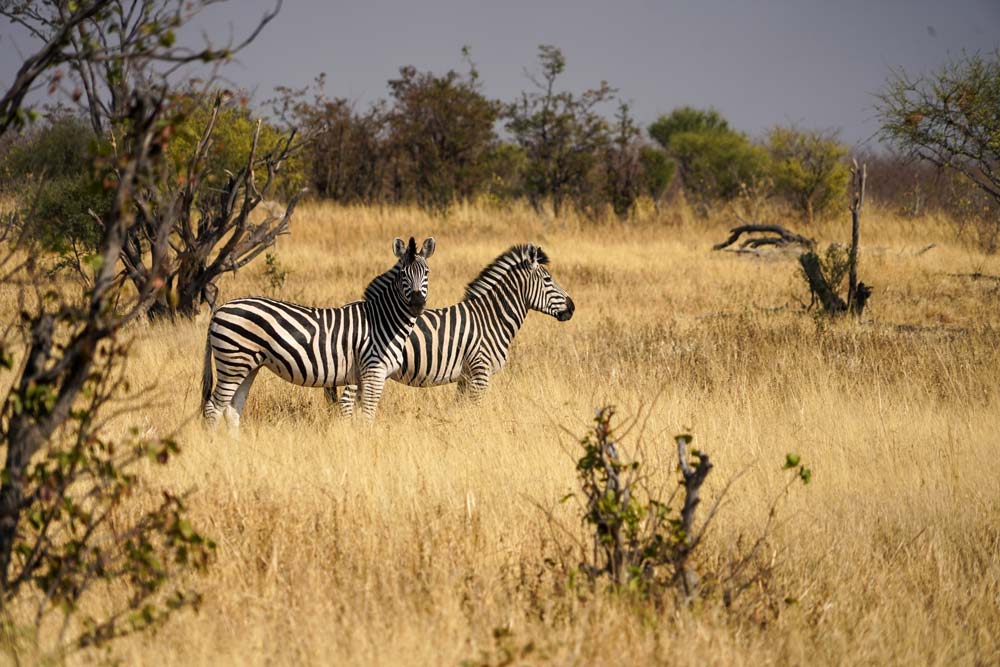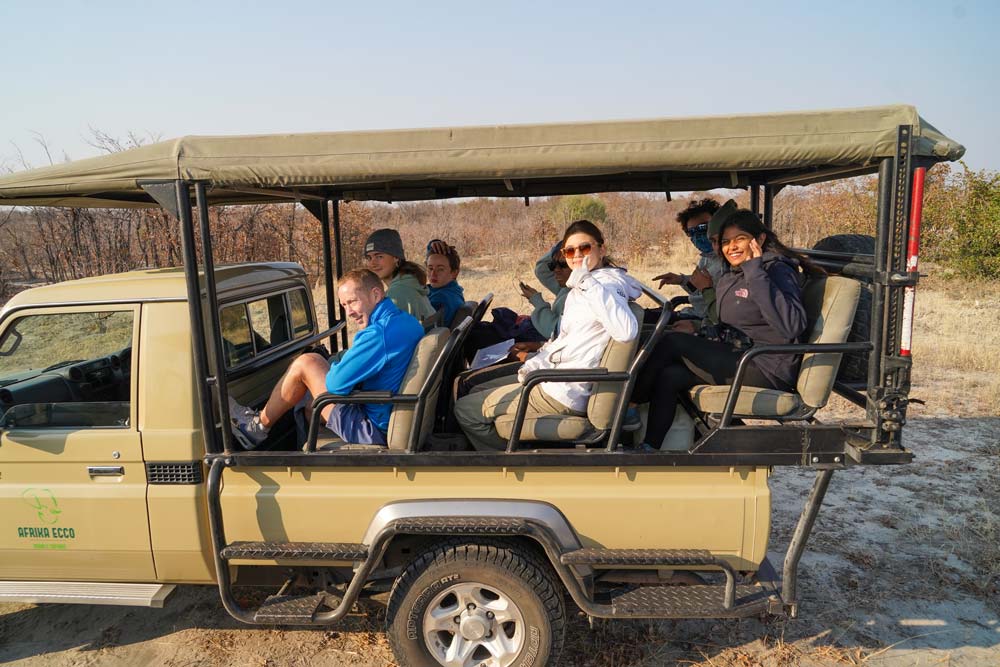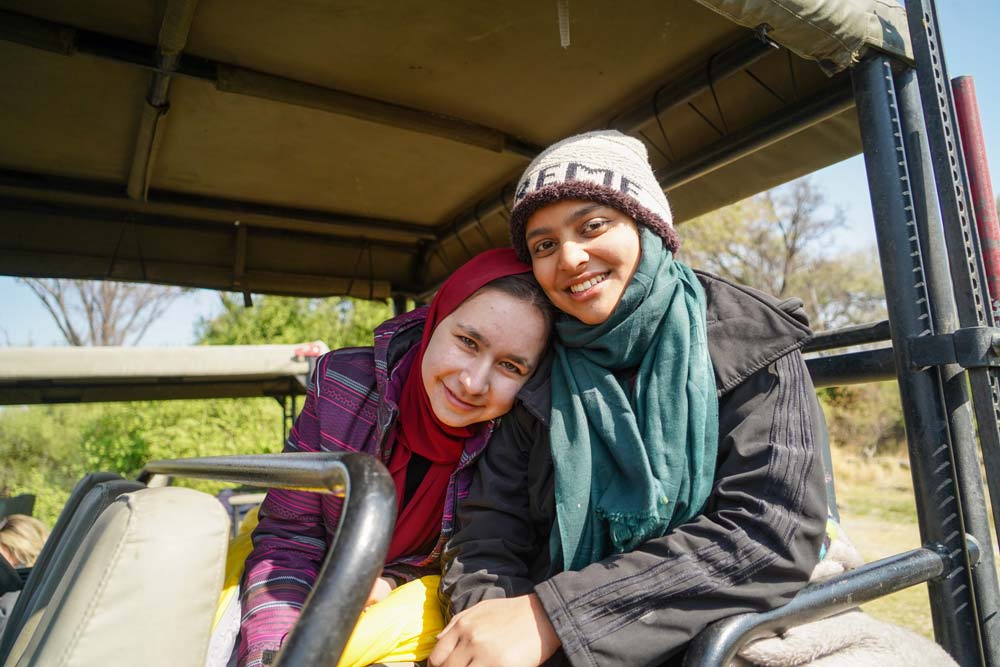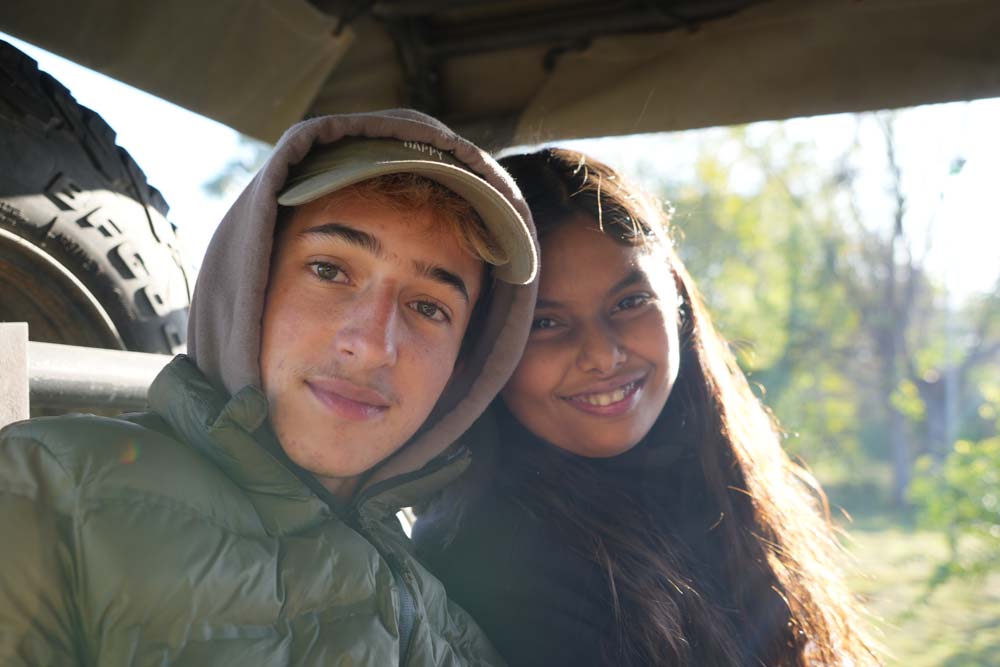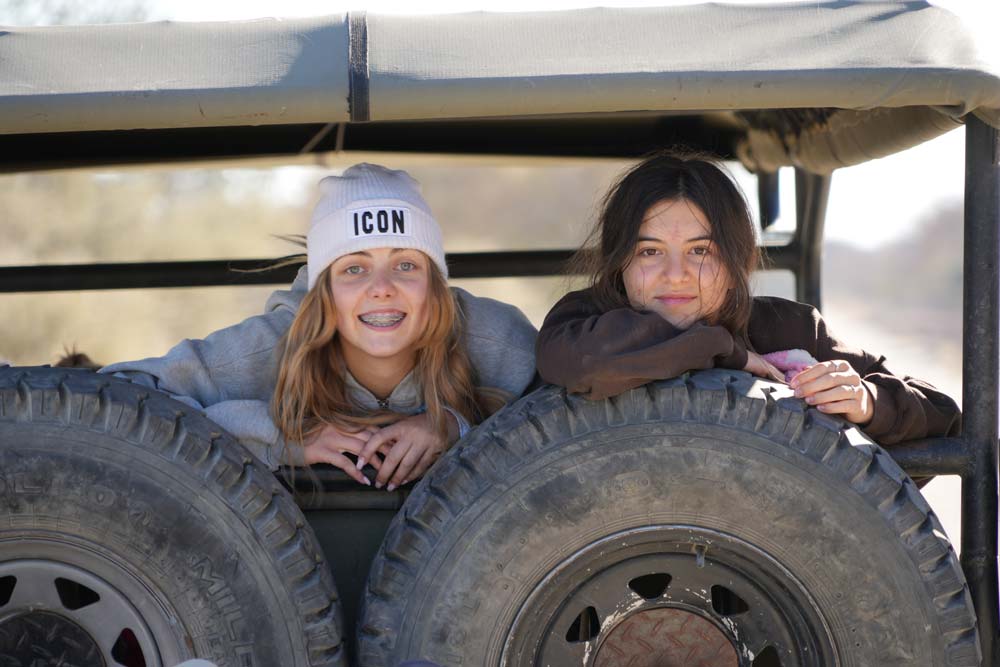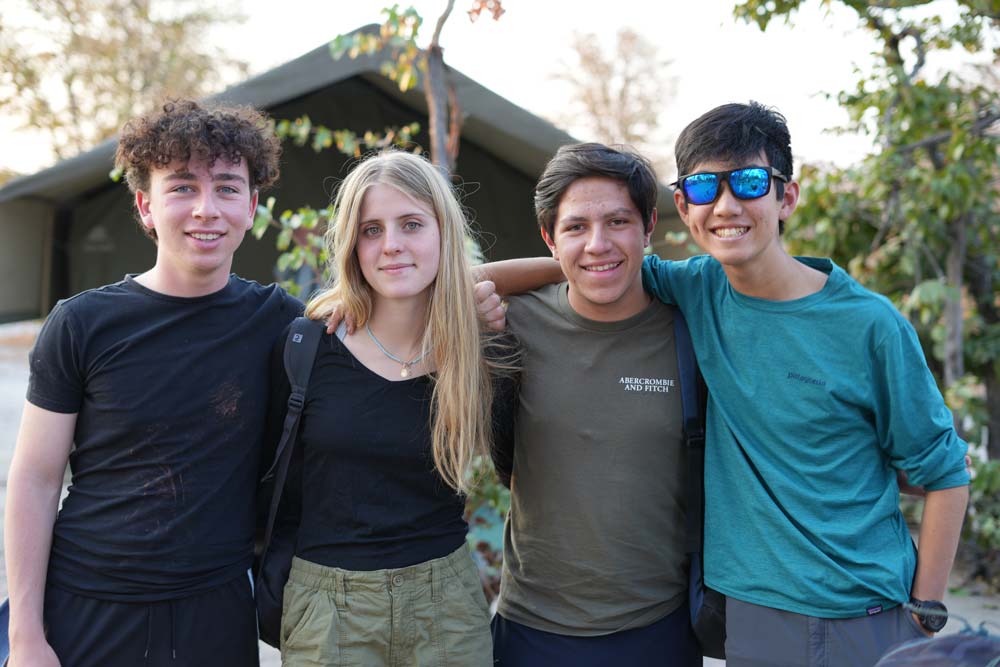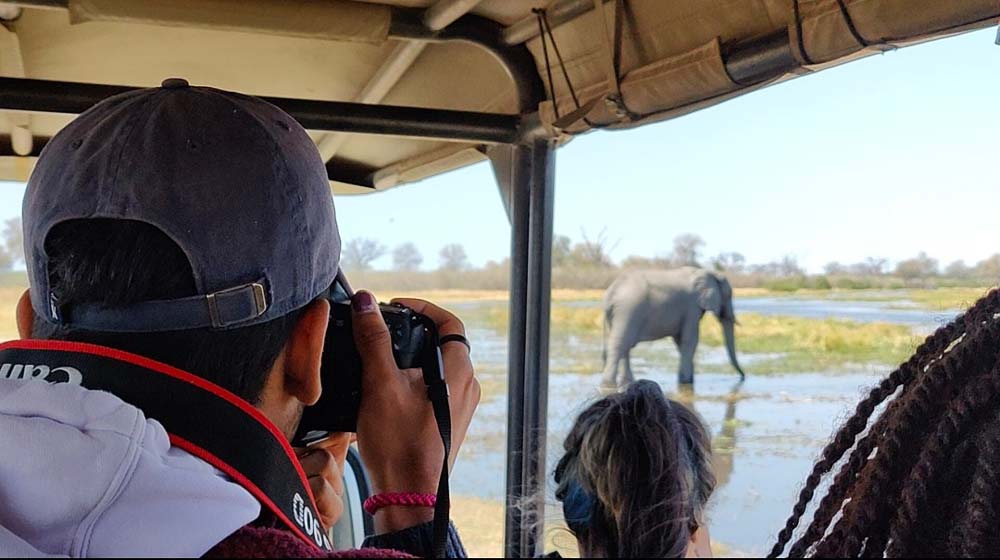1) Hi Nada, can you tell us what you've been up to since graduating from THINK Global School in 2022? Since graduating in 2022, I've been pursuing a passion I found while at TGS, sustainability, and I am currently majoring in engineering in renewable energy systems at Al Akhawayn University, in Ifrane, Morocco. But there is way more than that! I've had a chance also to explore the world of...
Read MoreLike at many schools around the world, a sense of normalcy has returned to THINK Global School. During the 2021-22 school year, many countries opened their doors to travelers again as the risks of COVID declined, and our students returned to in-person learning following five terms of remote learning.
The 2021-22 school year culminated with Term Four in Athens, Greece, where students participated in our annual all-school symposium and graduation ceremony. As an attendee myself, it felt great to participate in some of our most meaningful rituals again, especially in a city as beautiful and historically important as Athens.
Following graduation, suitcases were filled one final time, departure gates were closed, and our students headed home for a well-deserved summer break ahead of the start of the 2022-23 school year.
New Additions for the 2022-23 School Year
For the 2022-23 school year, we are excited to welcome four new educators: Kenzie Kelly, Adam Kemp, Neeki Armani, and Saila Purho.

Alongside our new educators, we also welcomed 24 new students into our fold. These new students hail from 21 different countries and join our 35 returning students, who themselves hail from 26 countries. So, in total: 59 students from 33 countries, making THINK Global School one of, if not the most, geographically diverse schools on the planet.
This geographical diversity is a critical component of a THINK Global School education, as, alongside travel, it opens up an entirely new world of viewpoints for our students. These viewpoints add context to conversations, collaborations, and shared experiences in each country we visit. You can learn more about diversity at THINK Global School here.
Where to for Term One?
For the first term of the 2022-23 school year, our CM2 students had the opportunity to visit a country that THINK Global School has visited three times prior: Botswana
Students spent the first week in the capital city of Gaborone before moving to the smaller northern town of Maun, adjacent to the Okavango Delta, for the remainder of the term.
During their time in Botswana, CM2 students worked on projects based around the following driving question: In what ways can the art of storytelling be adapted to communicate across disciplines and for different purposes? You can learn more about this project module in the academic section below.
Rite of Passage
Introduced in 2017, all new students at TGS participate in the Rite of Passage at the start of their first term. These symbolic excursions provide a valuable crash course on the school’s mission, vision, core values, culture, and practices. They also encourage students to challenge their prior beliefs in their capabilities through team-building challenges and interpersonal communication activities.
Another area in which our Rite of Passage provides value is in allowing the newest members of our community to shed their inhibitions and begin the process of building fast friendships with their classmates from across the world. Collaboration is essential during the Rite of Passage, and bonds are quickly formed as students progress towards completing their respective ROP final challenges.
CM2 Rite of Passage
New CM2 students participated in their Rite of Passage in the city of Maun and the adjacent Okavango Delta. The activities began in Maun with a few trust exercises like falling into a fellow student’s outstretched arms and shoelessly navigating a field of mousetraps.
The remainder of the Rite of Passage was entirely tech-free (except for one hidden camera a distance away). Living for four days without phones and laptops allowed students to be fully present at any moment, whether that moment involved building a shelter out of branches, discussing leadership and conflict resolution in small groups, or building emblems based on THINK Global School’s core values.
CM2’s ten new students spent a night in the wilderness cooking for themselves and sleeping in shifts by the campfire. By the time they returned to the main camp, they had proved their embodiment of grit, ubuntu, and satya — three of THINK Global School’s core values. Returning students and staff subsequently welcomed them into the CM2 huddle.
For their full school orientation, CM2 students and staff spent a day touring Gaborone and absorbing Botswana’s past and present before heading an hour away to the Bahurutshe Cultural Village, where they witnessed a variety of Botswanan traditions firsthand. A couple days later, students visited the Maru-a-Pula School where they described THINK Global School to the school’s global awareness class. After orientation, all of CM2 packed their bags onto a tour bus and traveled 10 hours to the northern city of Maun where they spent the rest of the term.
Project-based Learning Modules
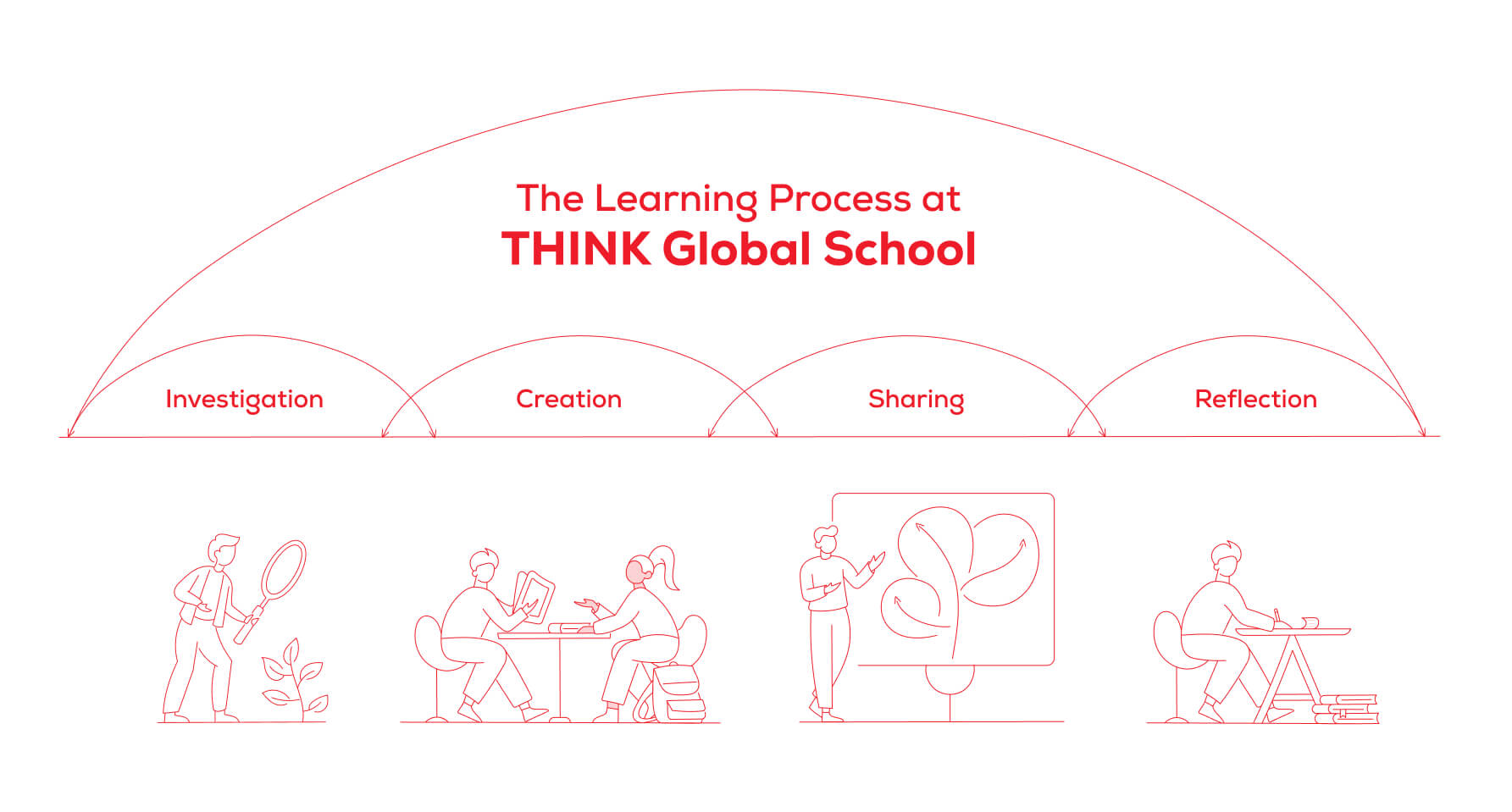
THINK Global School does not employ a traditional classroom dynamic; rather, learning is student-centered and focused on projects that explore real-world challenges.
Each term, students select a teacher-led module to participate in. These eight-week modules are designed by our educators and ask students to solve a driving question by term’s end, with their findings being shared during an end-of-term showcase.
Each module is built on learning targets, which serve as the backbone of our curriculum. By constructing modules around learning targets, we can ensure that each student receives a comprehensive education, as satisfying each learning target at least once is a condition for graduation. Science-themed modules will likely have science-based learning targets attached, while an art project will focus on art-themed learning targets. 21st Century Skills, which include applicable life skills like communication and critical thinking, are also a mainstay of our students’ projects.
You can find all of our learning targets below and learn more about them here.

Conservation & Storytelling Module in Botswana
During their time in Botswana, students focused on the following driving question: In what ways can the art of storytelling be adapted to communicate across disciplines and for different purposes?
The module had two focuses: ecology and oral storytelling.
Oral Storytelling Focus
Through the oral storytelling focus, participants learned about the vital role oral storytelling plays in Botswanan culture and traditions. Their goal by term’s end was to write a story based on their experiences in Botswana, which would be shared in the oral storytelling tradition that has been around for generations. To build up their skills and knowledge, participants in this focus met with local storytellers and many community members to get a feel for life in Botswana –what is important and makes people here tick– which would prove invaluable in their writing and end-of-term performance.
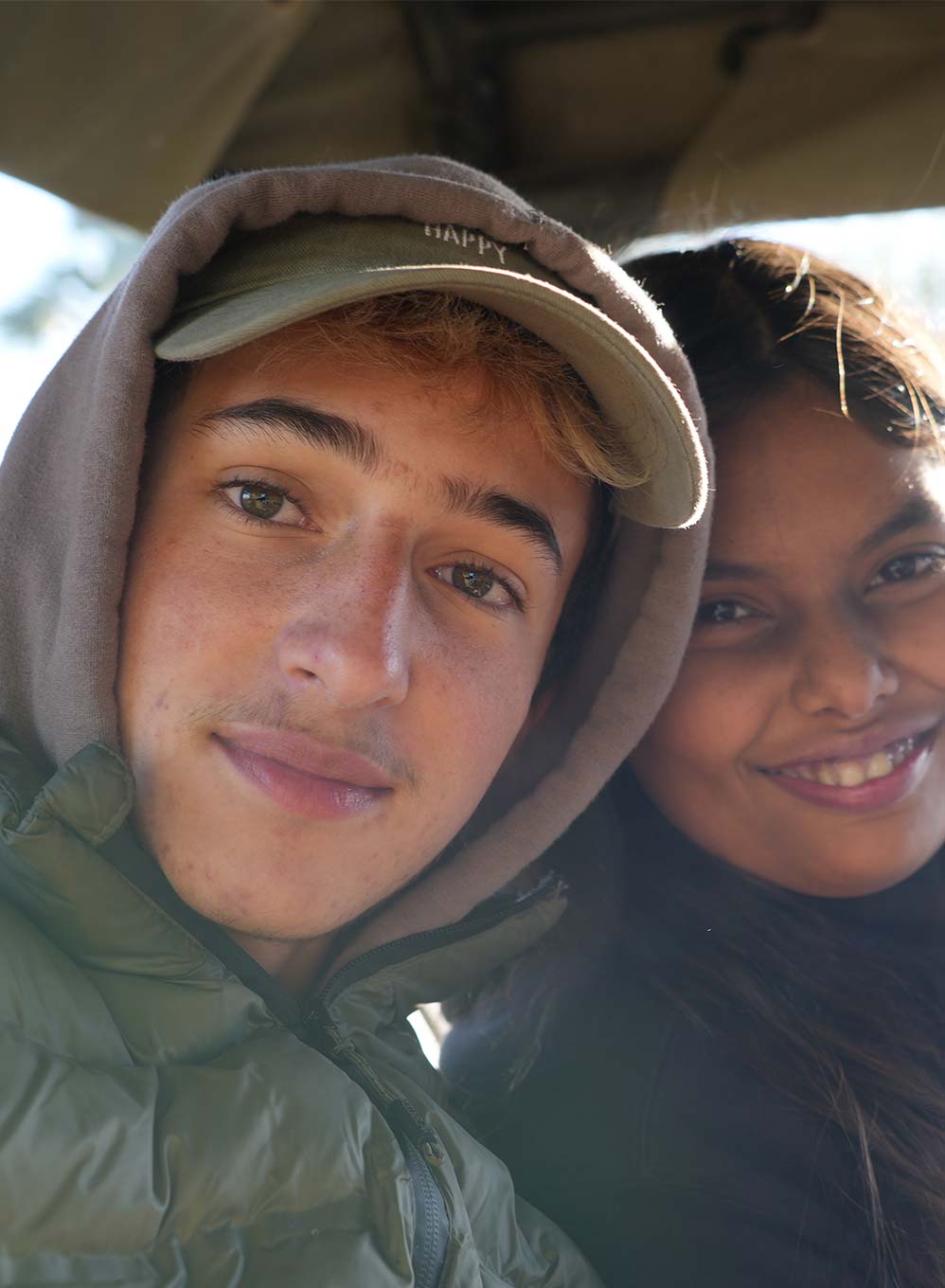
This module was an experience which completely changed my perception about Botswana, by making me go out of my way to find out more about their history of oral tradition, as well as their cultural artifacts, so that I could create a unique story. I was able to interact with fascinating individuals who showed me different ways of living which I had never even considered. I found myself constantly striving to create a story I could be proud of, and looking back at my time here, I think that this unique experience shaped my way of thinking and perceiving the art of storytelling.
-Class of 2024 Student Santiago D.
Alongside learning from the community, our educators spent a lot of time working with students on the mechanics of writing a good story. During the term, they explored the following:
- The five elements of a good story (Who/What/Where/When/Why)
- Character development (Flaws/Depth/What they value/What they are afraid of)
- Narrative structure
- The elements of storytelling (Words/Sound/Movement/Energy/Costume/Space/Audience)
Educators worked with students throughout the entire writing process as well, providing feedback on their premise, execution, and final versions.
During the final week of the term, students shared their stories orally during their PBL showcase. For many, this meant embodying the THINK Global School core value of grit, as public speaking might have been a new experience for them.
Ecology Focus
Whereas the Storytelling focus encouraged participants to embrace their creative side, the ecology focus allowed students to delve into the sciences through conservation studies, firsthand data collection, and analysis. Throughout the term, students got hands-on in learning about what data is, research and data collection methods, and correlation/causation.
Participants in the ecology focus heard from conservation and ecology scientists and community members to understand perspectives on human-wildlife conflict, the tourism industry in Botswana, and how to conduct unbiased studies and data collection ethically.
Through the guidance of local conservation experts, including Christiaan Winterbaach, a preeminent researcher in lion behavior with over ten years studying them in the Okavango Delta, students went into the field to learn about spoor counts, camera traps, transect studies, and interviews before conducting research using all four methods. After gaining experience with the various collection methods, participants explored the pros and cons of each, including their effectiveness, efficiency, and reliability. For the interview portion, students interviewed farmers, tour guides, and children to understand their opinions and relationship living alongside Botswana’s many animal species.
Students also conducted smaller internal studies to become familiar with data collection and research, like measuring daily water bottle usage within the community to understand research questions, chart making, data representation, and reflection.
The ecology focus also contained a storytelling element, as participants were asked to convey their scientific findings orally to different audiences during the end-of-term showcase.
Cultural Excursions
During their first week in Maun, all students went on three unique cultural experiences to learn about Botswana’s culture and gain inspiration for their module work. The three excursions focused on different parts of Botswana’s society and economy: basket weaving, politics, and agriculture.
Weaving Excursion
During their first excursion, students learned about one of Botswana’s most famous art forms: weaving. Students learned that the techniques used originated in Angola but were brought to Botswana, where they have found their own success. Patterns are weaved using the sinew of palm trees and feature designs symbolic of Botswana’s different tribes. Perhaps the most crucial aspect of the excursion is that students learned over 100 local women earn an income from weaving, most of whom are single mothers.
During the visit, students had a chance to try their hand at weaving baskets and bracelets, realizing quite quickly that it was monotonous and hard work. While they found the outing enjoyable, it helped instill a sense of respect for the women who spend hours a day repeating the same task as a means to an end.
Politics Excursion
For their second excursion, CM2 students got dressed up and visited a kgotla, the local community center where everyone gathers. The kgotla is open every day, and members of the community can always be found there.
During the visit, students had the chance to speak with the khosi, who is second in line to the chief. He explained that regular meetings are held at the kgotla to discuss how the village is doing and community concerns. Like at TGS, ubuntu (connecting to a greater whole – in mutual support and community) is very important in Botswana, and students learned about the role family, marriage, and respect for elders play in everyday life here.
The visit also focused on the community justice system and how in Botswana, there is a belief that conflicts can be resolved through dialogue within the community. In Botswana, people aren’t sent to jail for minor crimes; instead, they face the ktogla as a communal court. Punishments are decided and handed out here, cementing the importance of the ktogla and the tribal chief’s decisions to the community.
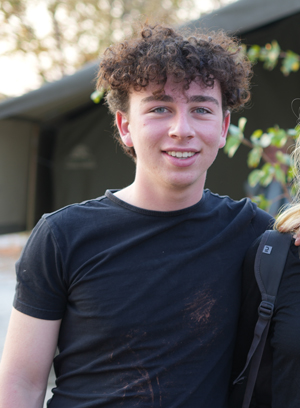
Going to a local village was really eye-opening and educational. I thoroughly enjoyed seeing what a government and hierarchy of a local village looked like. It was great to inquire about their law system, job opportunities, and educational practices. In addition to the aforementioned topics, I also learned a lot about Botswana’s traditional culture when it comes to traditions such as weddings.
–Class of 2024 Student Raf W.
Agricultural Excursion
For their third excursion in Botswana, students visited a local farm to learn about agriculture, which comprises about 2% of GDP — 80% of which comes from cattle farming. The farm students visited survived the pandemic due to good organizing on its part and a recently implemented import ban on South Africa, which has provided local growers the opportunity to flourish. Most of the produce grown at this particular farm is provided to local restaurants and shops.
During the excursion, students went on a food tour and had the chance to plant onions and fertilize vegetables with cow dung, which is used in Botswana as an insecticide. The cohort welcomed the opportunity to get their hands dirty, and even had the chance to interact with some lively chickens.
Probably the most informative portion of the experience was learning about the human/wildlife conflict that exists here. Botswana is home to more elephants than anywhere in the world, and farmers, in particular, have to deal with them and other animals uprooting their crops and damaging their livelihood. It was insight into the delicate balance that exists in Botswana between wildlife and humans, which has become a continuous overarching theme during our visits here.
CM2 weXplore
For their weXplore, CM2 students had the opportunity to spend time in the Okavango Delta and get exposed to the cultural traditions and conservation work taking place.
Among the varied activities were game drives to see animals such as elephants, giraffes, zebras, hyenas, lions, warthogs, hippos, crocodiles, waterbuck, steenbok, impala, roan antelopes, eland, and many more species. There was nothing quite like seeing an entire herd of elephants with multiple babies just meters away, grazing and enjoying the watering hole!
While at camp in the wilderness, students continued refining their module products, including collecting data from transect studies, understanding human-wildlife conflict, and listening to Botswana stories around the campfire.
Okavango Flight and Boat Rides
Okavango Delta Flight
On August 14th, several students had the opportunity to fly over the Okavango Delta in a small chartered plane. This aerial view allowed participants to see the Okavango Delta in a new way and spot several animals they hadn’t seen previously. The experience also highlighted the importance of animals collaborating to share the habitat with resources.
Okavango Boat Trip
On the boat experience, students went down a river and into the Okavango Delta, where they came face-to-face with animals and locals. It was a chance to get closer to wildlife than they did on weXplore, and they even saw some new animals, mainly the water monitor lizard and vultures.

Learning about the landscape on the water was really spectacular, especially when hippos would pop up around one meter away from our boat. It was nerve-racking but also incredible. Seeing the diverse landscapes of Botswana was both an incredible and memorable experience.
–Class of 2024 Student Raf W.
Project Highlights
Storytelling in Botswana – Ecology Focus by Kavi T.
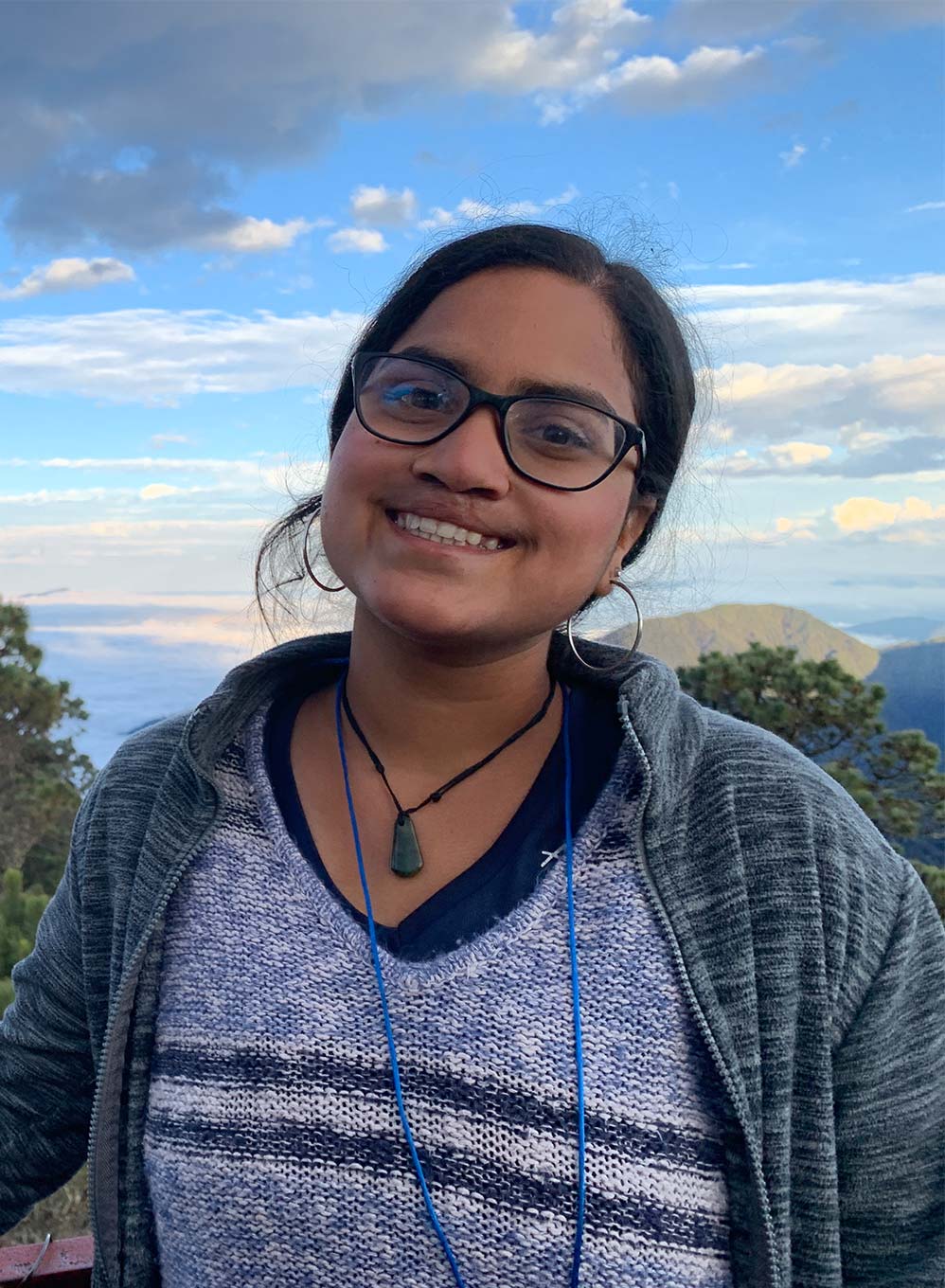
I learned so much about wildlife data collection which I have never done before. I also never knew the behind the scenes of the elephants and ecosystems and the impact it has on the local communities.
-Class of 2024 Student Kavi T.
Kavi T: For her project, Class of 2024 student Kavi T. made a zine about the debate over whether anyone should be able to kill elephants or not. She used quotes and facts from the interviews she conducted during the module and separated them into two opposing opinions. Kavi hopes the zine provides readers with a good understanding of the problem and the proposed solutions currently being discussed.
Storytelling in Botswana – Ecology Focus by Luiza B.
For her project, Class of 2024 Student Luiza B. wanted to share the beauty of Botswana with the world, and to do so she created a field guide that combines TGS photography, facts, and travel tips that prospective visitors can use to plan their own experience in beautiful Botswana.
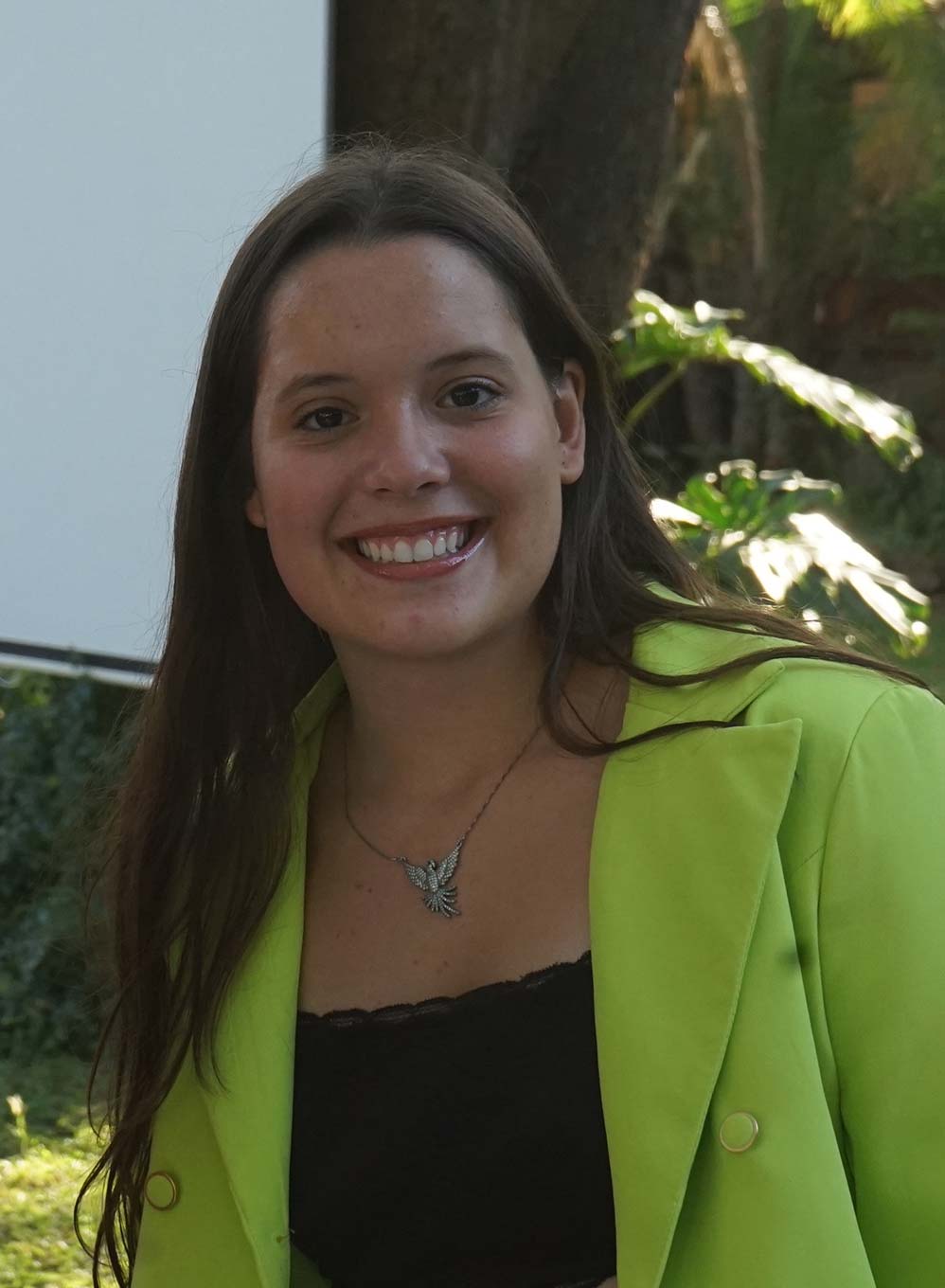
I started this project very excited to learn more about wildlife in such a spectacular place as Botswana. I worked thoroughly throughout this project and I’m very proud of my final product, which is a piece of digital storytelling conveyed through a website. I gave tips and suggestions to future tourists and provided them with a field guide and fun facts about animals they will most likely see if they visit amazing Botswana.
-Class of 2024 Student Luiza B.
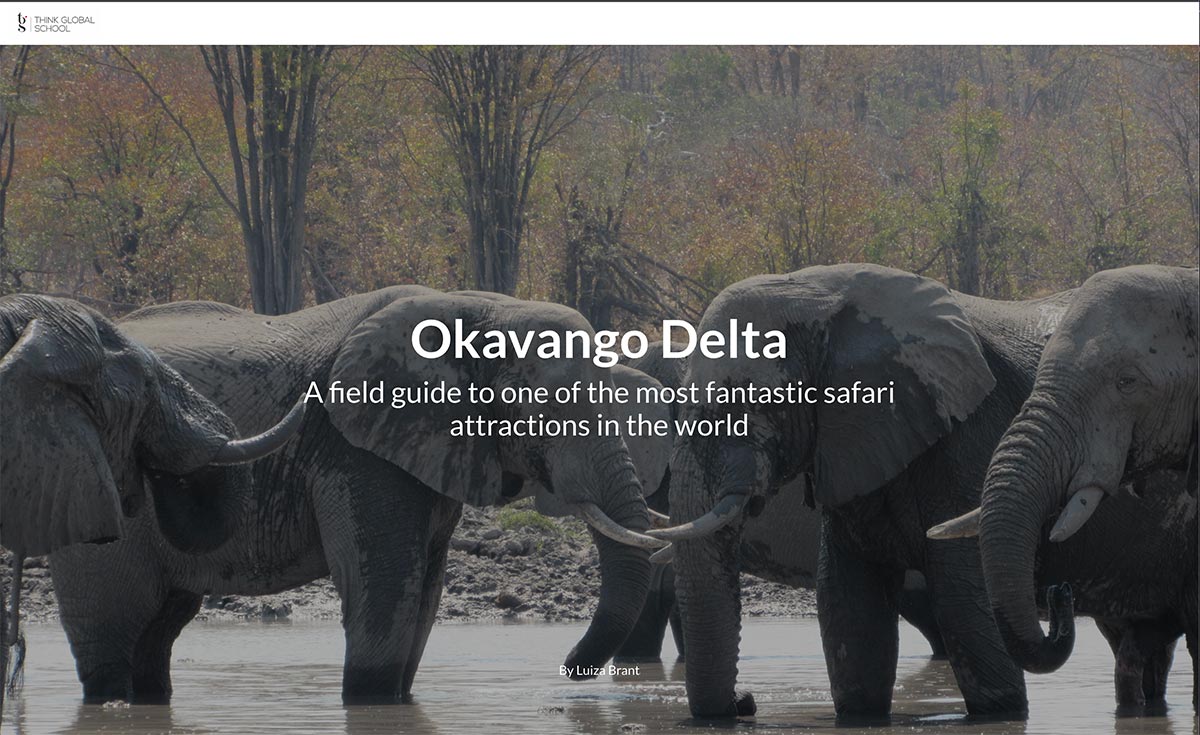
You can visit her website here.
